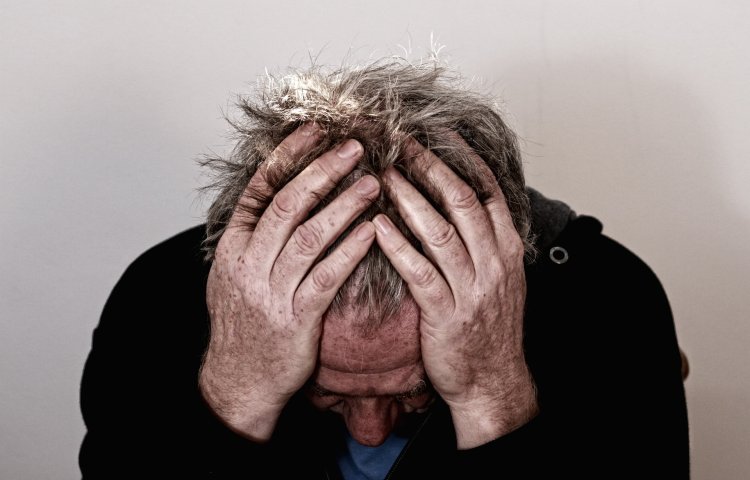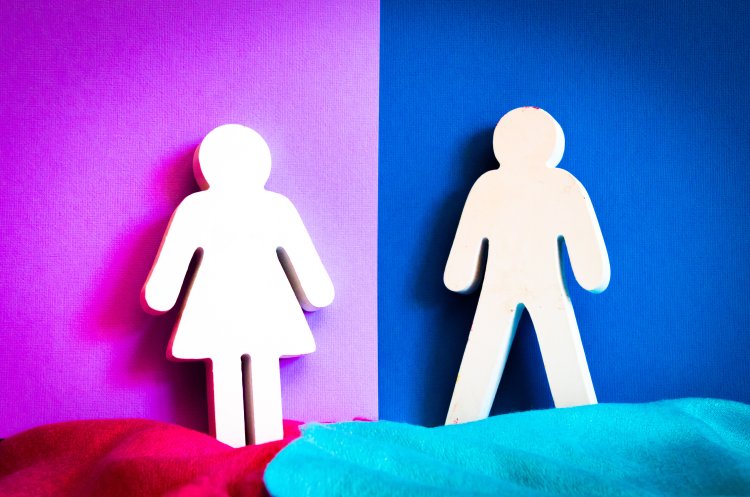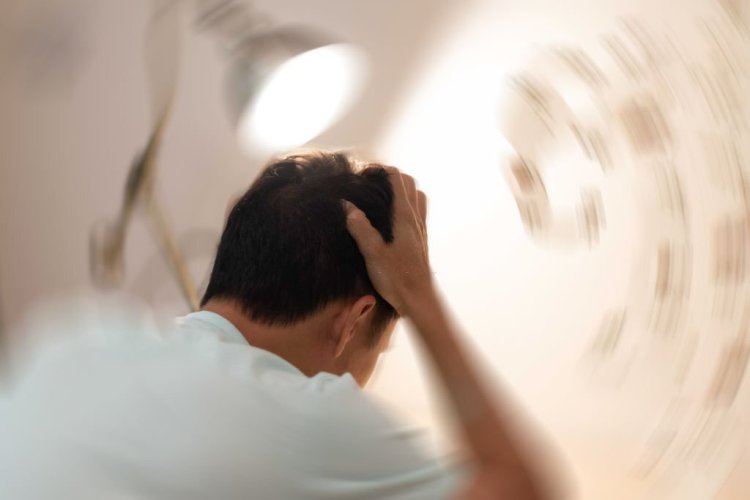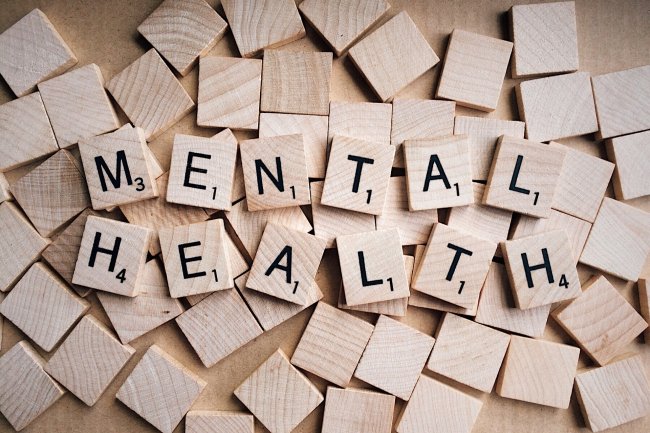Men & Mental Health: The unspoken
All genders are susceptible to experiencing depression, anxiety, and other mental health difficulties. Men, in contrast, might look differently. Men's mental issues, known as the "hidden pandemic" are an increasing source of concern for medical professionals and demand treatment. We need to talk about it!

Men & Mental Health:
The Unspoken

To survive, you require proper mental health in the same way that you do water. even though it can have a significant impact on a person's life, men's mental wellbeing is generally overlooked.Ignoring mental illnesses can have a negative impact on one's physical well-being and life expectancy. High-risk behaviours, such as substance abuse, gamble, and other dependencies, can develop as a result of neglected mental diseases. Unresolved emotional concerns might also hinder a man's ability to fully contribute to society and his family. All genders are susceptible to experiencing depression, anxiety, and other mental health difficulties. Men, in contrast, might look differently.
Research conducted around the world reveal that men usually find it harder than women to talk about their issues with psychological health. The social stigma associated with mental illness is one of the main barriers men face when getting assistance or opening up about their problems. Men's mental issues, known as the "hidden pandemic," are an increasing source of concern for medical professionals and demand treatment.
Sociocultural preconceptions and gender biases
It might be challenging for guys to talk about their mental wellbeing or get treatment because of gender stereotypes and societal pressures on men. The idea that "boys don't cry" is accepted by the majority of cultures. They anticipate that men will act as powerful, emotionless father figures who will be responsible for, rule over, and govern the family. Although these myths aren't necessarily bad, guys are raised believing that having emotions or seeking mental health assistance are indications of weakness.

In this civilised society, all genders have various duties to play. Some scholars claim that the mental state of men is in a silent danger. According to the WHO's 2018 study, one of the biggest obstacles to people seeking help and confessing they need it is huge taboo related to their mental health.
Causes of men's difficulties with mental health
- Trauma: It can refer to grave feelings and experiences like sexual abuse, war, or routinely being under stressful circumstances Among guys who have been assaulted, PTSD is common. 10 The probability of developing panic attacks like PTSD is increased by participating in combat or seeing violent events.

- A heavy schedule or unfavourable conditions of employment: Stress at job and a low level of social assistance have been related to a greater likelihood of having a mental illness in men.

- Gender stereotypes: These could include obligation to be a breadwinner or social norms that restrict men from voicing their feelings.

- Male depression rates are higher among those who are Unemployed or retired. Seven out of every ten men experience despair after losing their jobs.

- Financial worries: For several individuals, money concerns is a significant cause of stress and may contribute to the onset of several mental health conditions.

Childhood abuse or domestic issues: Any hardship encountered as a youngster may raise the likelihood of mental health issues in maturity.

Men's Mental Health Issues that are Common
1. Depression
Men most frequently experience this type of mental illness. The majority of men live with undiagnosed depression because men's depressed symptoms are less severe than those of major depressive disorder and because men's depression is treated less frequently than female depression.

2. Anxiety
Men who experience this mental health issue frequently. The most prevalent anxiety disorders are phobias, panic disorder, GAD,OCD, and social anxiety. ADHD and substance use disorder risk factors for men who are anxious are increased.

3. Substance use disorder
According to data on male mental health, adolescent adult men are more prone to take drugs than women within the same age range. Men use a variety of drugs as defence mechanisms for a variety of situations. Men also have a higher inclination than women to become alcoholics, which contributes to the greater rate of alcohol-related hospitalisation and fatalities.

Since men's substance abuse is much more accepted in society and even viewed as a "masculine trait", substance use disorders are frequently disregarded as mental health issues. Men are more likely to develop a substance use disorder as a result of this.
4. PTSD (post-traumatic stress disorder)
Men frequently have PTSD as a result of various mental health issues. In their lifetimes, males experience at least one traumatic event involving physical attack, mishaps, seeing someone else get hurt or killed, and battle. The brain may be permanently altered by these experiences, which may have an impact on one's mental wellbeing.
The daily quality of life for men might be negatively impacted by PTSD symptoms. However, the majority of affected males do not seek medical attention because they would rather endure their symptoms in quiet or ignore physical or behavioural problems that might be showing symptoms.

5. Bipolar disorder
The mood and energy levels of people with bipolar disorder fluctuate greatly. males may be affected by the illness, which commonly starts to show in men between the ages of 15 and 24. The majority of symptoms during the manic period can be mistaken for typical masculine conduct, which means that this disorder frequently goes misdiagnosed in men. Additionally, men's manic episode cycling is less common, making it harder to diagnose in men.

Suggestions for Improving Men's Mental Health
- Voice it out
Men are psychologically programmed to repress their feelings and refrain from talking about things that hurt them. To become a better communicator of your thoughts and feelings as a man, take the first step. Men need to understand that it's okay to be vulnerable and express their emotions. As you discover how to request help for your physical and emotional health, you can begin by being open with those who are closest to you.
- Change the way you look at psychological health
You need to begin recognising as a guy how important your intellectual health is to your physical well- being. As a result, it'll be simpler for you to ask for backing when you're dealing with cerebral health problems. As important consideration and care should be given to your internal health as you would your overall fitness.
- Consider remedy
Seeking professional help for your cerebral health is maybe the most important way you can take. The appropriate system to acquire a correct opinion of your cerebral health situation and develop bettered managing mechanisms for internal health diseases is to seek expert backing. You can gain support from a internal health expert as you suffer the process of understanding who you're and conforming to a treatment.

The difficulties affecting men's internal health are veritably different from those affecting women, yet they're inversely significant. Men are unintentional to seek help for their issues, which is a cause for concern. still, men with internal illness can significantly ameliorate their quality of life by continuing to admit remedy. You can lessen symptoms, enhance your good, and lower your threat of self-harm with the backing of family members and medical specialists. numerous organisations help those who suffer from internal illness, and a lot of them concentrate entirely on educating and helping males.
What's Your Reaction?


















